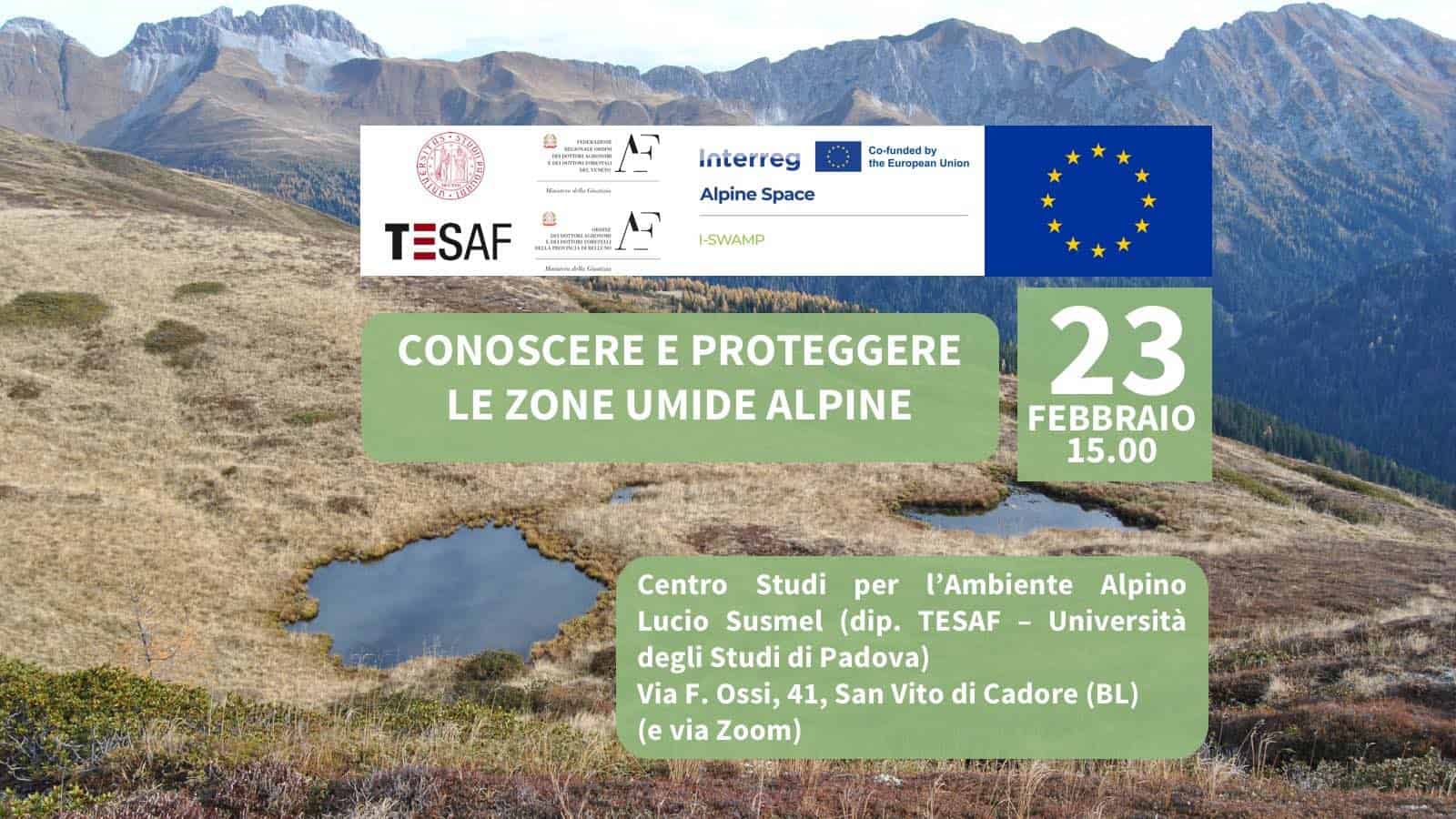On Friday, February 23rd, a seminar titled “Conoscere e proteggere le zone umide alpine” (Understanding and Protecting Alpine Wetlands) took place. The event was hosted both in-person at the Centro Studi per l’Ambiente Alpino Lucio Susmel in San Vito di Cadore (TESAF, UniPD) and virtually, via Zoom.
Despite the challenging weather conditions limiting in-person attendance due to heavy snowfall, the online session drew the interest of about 140 participants. This success was made possible through the collaboration of FODAF Veneto and ODAF Belluno, recognizing the seminar as a training course for agronomists and foresters. Attendees included professional agronomists and forest scientists from various regions in Italy, local and provincial administrators, naturalists, environmental activists, hiking and environmental guides, enthusiasts, and more.
The seminar featured four insightful presentations:
Tipologie ed esempi di zone umide nel territorio alpino (G. Menegus, TESAF): introducing I-SWAMP and its outcomes, and presenting the types and some examples of wetlands in the Alpine region, focusing on Cadore area.
La vegetazione delle zone umide alpine (C. Lasen): delving into the plant communities of Alpine wetlands, suggesting some best practices for their conservation.
Le libellule delle zone umide alpine: ecologia e tutela di importanti indicatori (L. Bonometto): introducing the ecology and conservation status of dragonflies in Alpine wetlands as crucial indicators of environmental change.
Anfibi e rettili delle zone umide alpine e misure di mitigazione per tutelarli durante i cantieri e la manutenzione delle pozze (G. Bombieri): introducing the amphibians and reptiles of Alpine wetlands, focusing on policy species, along with mitigation measures during construction and maintenance of water troughs and ponds.
For those who missed the event, the seminar is now available on the I-SWAMP YouTube page and in the resources section of our website (the playlist is available here).
We extend our gratitude to all participants and partners for contributing to the success of this seminar. Their participation shows that the need to understand and preserve Alpine wetlands is well-understood by local stakeholders. We encourage you to explore the online resources available for further insights and to stay tuned for next news and resources.



